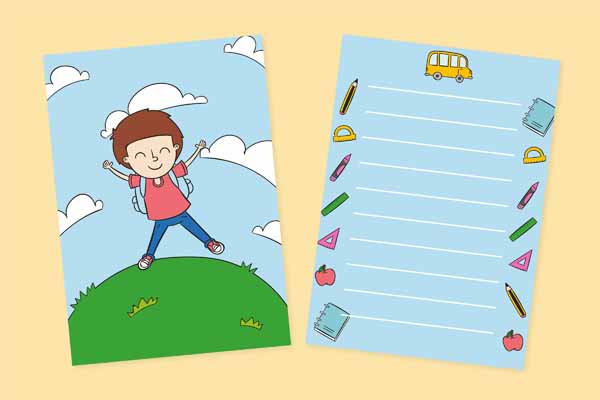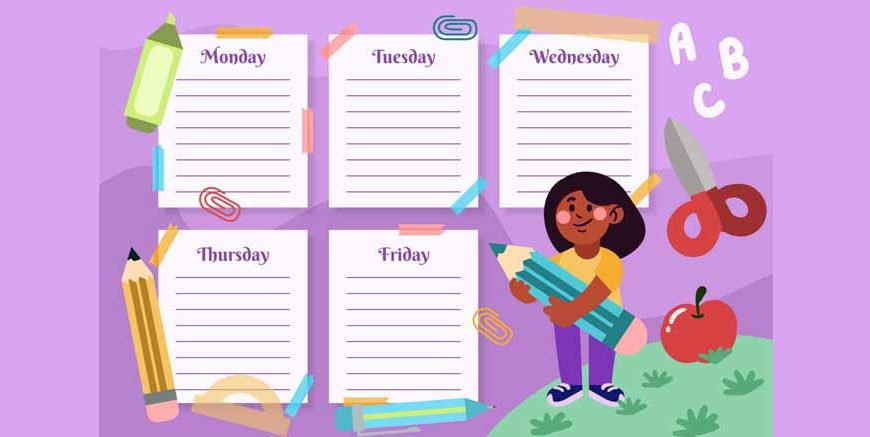Diary writing for kids is more than just a pastime, it’s a powerful tool that nurtures creativity, strengthens kids’ communication skills, and provides children with a safe space to express themselves. When children learn how to write a diary, they not only practise their language but also build confidence in articulating their thoughts and emotions. With consistent practice, diary writing for kids in English becomes a fun ritual, encouraging young learners to reflect on their daily lives, capture special moments, and explore their imagination.
In today’s world, where children are surrounded by technology, encouraging them to maintain a diary offers balance. It helps them slow down, think deeply, and translate their ideas onto paper. Whether you are a parent seeking engaging educational activities or a teacher searching for tools to develop kids’ writing skills, diary writing stands out as an effective practice. This blog explores the meaning, benefits, formats, prompts, and examples of diary writing for kids, while also highlighting how EuroKids supports creative expression in its classrooms.
What is Diary Writing for Kids?
Diary writing for kids is the habit of recording daily events, feelings, or creative thoughts in a personal notebook. Unlike formal essays or assignments, diaries are private and personal, allowing children to write freely without fear of judgment. It’s where they can talk about their happiest memories, share frustrations, or even imagine new adventures.
For children, diaries are companions. They become a place to pour out emotions, jot down dreams, or record achievements. Learning how to write a diary for kids is simple: start with the date, add a greeting, describe the events of the day, and close with a thought or signature. With time, this habit builds into a treasured keepsake of childhood experiences.
Also Read: Pre-Writing Strokes for Kindergarten
Benefits of Diary Writing for Kids
Diary writing comes with numerous benefits that go beyond improving language skills. It contributes to kids’ emotional growth, builds self-awareness, and encourages creativity.
1. Improves Writing Skills
Practising diary writing helps children refine grammar, spelling, and vocabulary in an enjoyable way. Instead of writing under pressure, they write naturally, which makes learning effortless. Over time, they get better at sentence structure, punctuation, and expression. Unlike traditional assignments, diaries provide freedom to write without strict rules, making it easier for children to embrace writing as a daily habit.
2. Encourages Self-Expression
Children often find it difficult to voice their feelings aloud. A diary acts as a safe listener, giving them the space to express joy, anger, excitement, or even worries. This form of self-expression in kids builds confidence and emotional clarity, especially when children learn that their words have value, even if no one else reads them.
3. Boosts Creativity
From imaginary friends to faraway kingdoms, children’s minds are full of stories waiting to be told. Diary writing prompts them to use descriptive language and explore their creative side. They can write about their dreams, create characters, or narrate funny events from school. The practice develops imagination and strengthens storytelling abilities.
Read More – Fostering Creativity & Imagination in Children
4. Strengthens Memory & Observation
Writing down daily activities sharpens observation. Children begin to notice details they might otherwise overlook, such as the colour of the sky, a friend’s gesture, or the taste of their lunch. Recording these moments helps kids to boost memory and teaches them to pay closer attention to their surroundings.
Also Read – Brain Gym Exercises & Activities For Kids
5. Promotes Emotional Well-being
Journaling provides a healthy outlet for emotions. Children who write regularly in their diaries often feel calmer and more balanced. It acts like therapy, reducing stress and helping them process challenges in a safe, non-judgmental way. Parents also notice improvements in mood and behaviour when children make diary writing part of their routine.
Read More – The importance of emotional health for students
Diary Writing Format for Kids

Teaching children the diary writing format is simple and helps bring structure to their entries. A clear format makes diary writing for kids in English easier and more enjoyable.
The typical diary writing format for kids includes:
- Date and day written at the top
- A greeting such as “Dear Diary”
- An introduction sentence setting the tone
- The body, where the main events, thoughts, or feelings are described
- A closing line, followed by the child’s name or signature
Also Read: Poetry Writing Guide for Kids
Example Diary Entry:
“Monday, 10th August – Dear Diary, Today was so much fun at school. We painted in art class, and my teacher said my drawing was very colourful. I felt proud when my friends clapped. After school, I played football with my cousins. It was the best day ever. Goodnight!” This structure keeps writing simple yet meaningful, making it accessible for children of all ages.
Fun Diary Writing Prompts for Kids
Sometimes children need a little inspiration to get started. Diary writing prompts act as gentle nudges, helping them put pen to paper without hesitation. Prompts can be fun, imaginative, or reflective, depending on the child’s interests.
For instance, children can explore topics like:
- My happiest memory this year
- A place I wish I could visit
- If I could have any superpower
- My favourite family tradition
- The funniest thing that happened today
These ideas spark curiosity and make diary writing enjoyable. Over time, children also begin to create their own topics based on personal interests.
How to Encourage Kids to Write a Diary
Encouraging diary writing for kids requires patience and creativity. A colourful notebook or a diary with fun designs can motivate children to start. Parents and teachers can set aside ten minutes daily for this practice, creating a quiet environment where children can focus.
It’s important not to correct every mistake. The aim is to build confidence, not perfection. Over time, parents can revisit old entries with their children, showing them how much their writing has improved. This reinforces their sense of progress and achievement.
Diary Writing Examples for Kids
Examples make it easier for children to understand how to write a diary. Here are two short, age-appropriate samples.
For Younger Kids:
Tuesday, 5th July – Dear Diary, Today I played with my puppy. He ran around the garden and made me laugh. I gave him a biscuit, and he wagged his tail. I love him so much.”
For Older Kids:
Friday, 22nd October – Dear Diary, Today our class went on a nature walk. The park looked beautiful with orange leaves falling everywhere. I collected a few to keep in my scrapbook. My best friend and I also saw a squirrel nibbling on a nut. It was such a peaceful and happy day.”
These examples demonstrate how diary writing grows in complexity with age.
Also Read: Top Handwriting Ideas for Kids
Tips for Parents to Support Diary Writing
Parents play a vital role in nurturing a child’s love for diary writing. Instead of making it feel like homework, present it as a fun activity. Allow children to write freely without fear of mistakes.
On days when they struggle, parents can suggest diary writing prompts. Most importantly, praise effort rather than neatness. A messy page filled with honest feelings is far more valuable than a perfect page with little expression. By keeping diary writing enjoyable, children will naturally want to continue.
How EuroKids Fosters Creative Expression
At EuroKids, creativity is celebrated as much as academic learning. The curriculum integrates activities such as storytelling, journaling, and art to encourage children to express themselves. Teachers focus on developing both language skills and emotional intelligence, ensuring that children grow holistically.
Through playful learning methods, EuroKids helps children enjoy writing, whether it’s in a diary, a story, or a class project. Parents who choose EuroKids not only give their children a strong educational foundation but also nurture their self-expression and confidence.
FAQs
What is diary writing for kids?
Diary writing for kids is the practice of recording daily events, feelings, and thoughts in a personal notebook.
Why is diary writing important for children?
It builds writing skills, creativity, emotional well-being, and self-confidence while encouraging reflection.
How do I teach my child to write a diary?
Start with simple diary writing formats for kids, introduce fun prompts, and encourage them to write daily without pressure.
What are some easy diary topics for kids?
Happiest memories, favourite family traditions, dreams, or even funny school moments are great starting points.
Does EuroKids teach diary writing?
EuroKids integrates journaling, creative writing, and storytelling in its curriculum, supporting children in developing writing habits.
Also Read: Creative Writing Ideas for Kids
Conclusion
Diary writing for kids is more than just putting words on paper, it is a powerful way to improve skills, nurture creativity, and enhance emotional well-being. From learning sentence structures to exploring imaginative stories, children benefit immensely from this practice. Parents and teachers can play an encouraging role by providing prompts, creating a relaxed writing environment, and celebrating effort over perfection.
At EuroKids, activities like journaling, storytelling, and creative projects ensure that children learn the art of self-expression alongside academic growth. To explore more insightful content, don’t forget to visit EuroKids Blogs. If you are considering enrolling your child in a nurturing, creativity-driven environment, learn more about EuroKids Admission. For entrepreneurs inspired by the EuroKids vision, there are also exciting opportunities through the EuroKids Franchise programme.
Diary writing, when integrated into daily routines, becomes a lifelong skill that helps children not just in academics but also in building confidence and self-awareness. It’s never too early to start, and with gentle guidance, every child can discover the joy of writing their own story.
Related Blogs
Master Writing Skills
Discover practical ways to help children develop strong writing foundations. This blog shares techniques to make writing practice enjoyable while improving grammar, vocabulary, and sentence structure.
Teaching Kids to Write Name
A child’s first step into the world of writing often begins with their own name. Learn fun, creative strategies to teach kids how to confidently write and recognise their names.
Empower Kids with Opinion Writing
Opinion writing encourages children to think critically and express their perspectives. This blog explores simple approaches to guide kids in forming and sharing their opinions clearly.
The Joy of Cursive Writing
Cursive writing is more than just neat handwriting, it enhances motor skills, memory, and creativity. Read how introducing cursive early can bring both joy and long-term benefits to children.
















